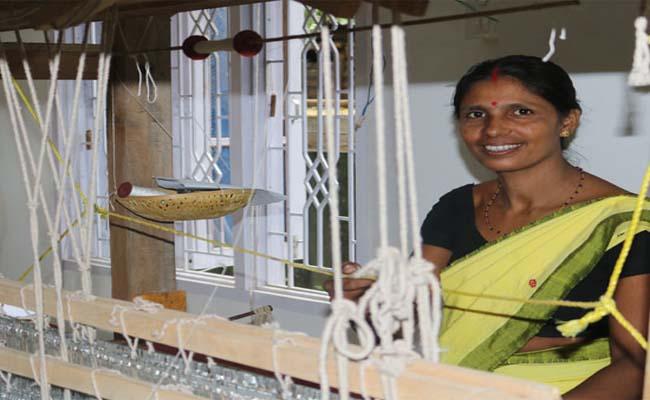Antaran comes to Vizag with weaves of Assam, Nagaland, Odisha, and Andhra Pradesh

Residents of Visakhapatnam will have the opportunity to interact first-hand with Artisan Entrepreneurs incubated by Antaran - a key intervention of the Tata Trusts’ craft-based livelihood program this Saturday and Sunday.
A curated collection of handwoven sarees, fabrics, and dupattas created by weavers from 3 clusters in different techniques will be up on display and sale at the Hotel Palm Beach on 7th & 8th January from 11 am to 7:30 pm.
Luxurious Tussar silks from Gopalpur and cotton weft ikat textiles from Maniabandha in Odisha, along with the fine cotton, silk-cotton, silk, and special jamdanis of Andhra's own Venkatagiri weavers will be showcased and sold by the artisans directly.
The artisans are part of the Antaran intervention that looks at the holistic development of each weave cluster, not limited to design and marketing activities. It involves technical, design, quality, enterprise, market development, and steps to strengthen traditional craft ecosystems with an emphasis on sustainability.
Six weaving clusters across 4 states - Assam (Kamrup and Nalbari), Nagaland (Dimapur), Odisha (Gopalpur and Maniabandha), and Andhra Pradesh (Venkatgiri) have been covered under the initiative so far with a special focus on design development in weaves and creation of local microenterprises across each element of the value chain, through a combination of classroom and hands-on education.
Till date, 200+ artisan entrepreneurs (who in turn have passed on the knowledge to 2000 + artisans) have been nurtured by Antaran through its program in 6 clusters - Kamrup and Nalbari in Assam, Dimapur in Nagaland, Gopalpur and Maniabandha in Odisha and Venkatgiri in Andhra Pradesh. More artisans have benefitted indirectly too, through increased exposure of the clusters to buyers and markets through Antaran’s sustained efforts in highlighting the uniqueness of each cluster.
The craft sector is the second largest traditional occupation in India after agriculture involving more than 7 million families as of date, while it has the potential to involve more and stop migration. Regular markets can motivate the artisans to continue their century-old crafts and stop migration to cities.
It will be a great opportunity to shop for unique handmade textiles, contributing to sustaining India's precious craft skills and gaining beautiful products in return.






